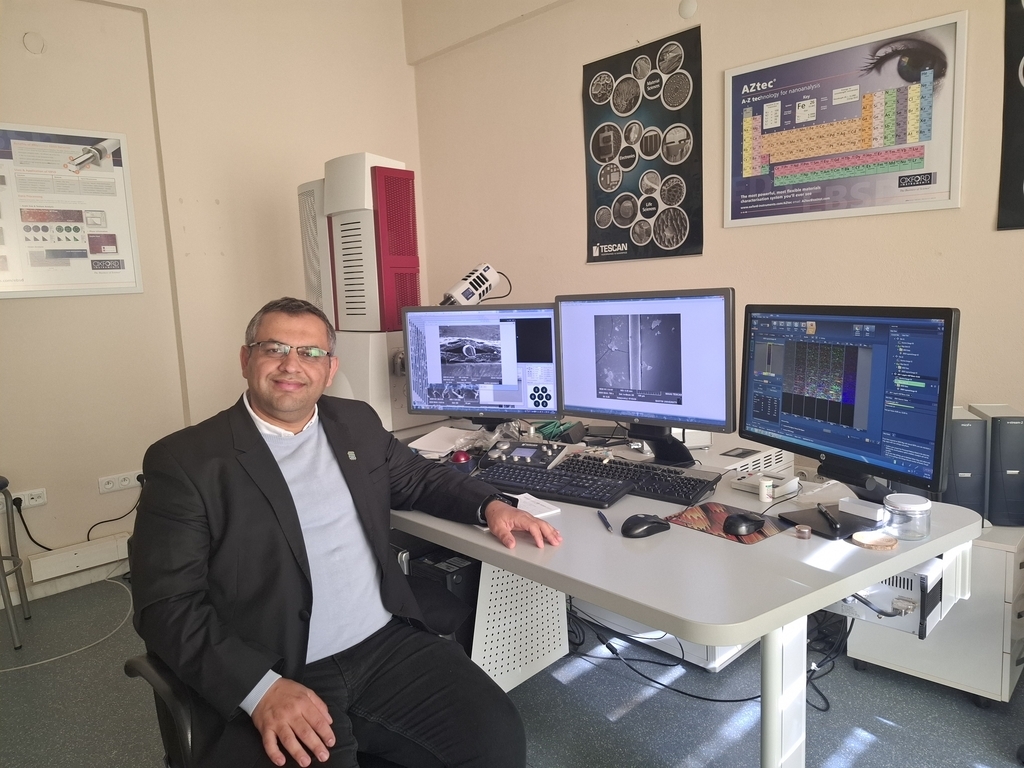
16 SMEs from Two Countries to Benefit from Project Outcomes
Innovative Methods to Be Tested in Smart Textiles for Sustainability Through BARÜ’s Germany–Turkey Joint CORNET Project
A project jointly developed by Bartın University (BARÜ) and Germany under the CORNET (Collective Research Network) Program will explore innovative methods in the field of smart textiles with a focus on sustainability.
Within the scope of TÜBİTAK’s CORNET Program, the project titled “Conductive Nanocomposite Filaments for Next Generation Textiles (NanoComTex)”, coordinated by Asst. Prof. Müslüm Kaplan from BARÜ Faculty of Engineering, Architecture and Design, Department of Textile Engineering, has been approved for funding. The project will conduct various collaborative studies on wearable electronic devices and smart textiles, which have gained significant popularity in recent years.
Project partners include the Leibniz Institute of Polymer Research Dresden (Leibniz-Institut für Polymerforschung Dresden e.V.–IPF) and the Saxon Textile Research Institute (Sächsisches Textilforschungsinstitut–STFI) from Germany. Asst. Prof. Çağrıalp Arslan from BARÜ’s Department of Textile Engineering will participate as a researcher. A total of 16 small and medium-sized enterprises (SMEs) from Turkey and Germany will benefit from the project’s results as members of the “User Group.” The Bursa Technical University Technopark will support Turkish SMEs, while the Research Association for the German Textile Industry (Forschungskuratorium Textil e.V.) will serve as the “SME Umbrella Organization” in Germany.
The NanoComTex project aims to utilize recycled polymer materials from a sustainability perspective to both reduce environmental impact and provide cost advantages for manufacturers.
Sustainable and Durable Textile Solutions to Be Developed
Providing information about the project, Asst. Prof. Müslüm Kaplan stated:
“Textile products, by virtue of covering the human body and being worn by individuals throughout the day, serve as a critical interface for the integration and dissemination of emerging communication devices, flexible electronics, and nanomaterials. However, because textile polymers are naturally electrically insulating, this presents a significant limitation for smart textile applications. The main goal of our project is to create conductive nanocomposites by blending carbon-based nanomaterials such as carbon nanotubes (CNT), graphene, and carbon black into thermoplastic polymers in the molten state, and then transforming them into conductive textile filaments through melt-spinning. The developed conductive filaments will offer superior processability, washability, and long-term durability compared to current alternatives on the market.”
Contributing to an Environmentally Friendly and Sustainable Textile Industry
Emphasizing the importance of the project, BARÜ Rector Prof. Dr. Ahmet Akkaya said:
“As Bartın University, we continue to take part in international projects in line with our goals of science-, technology-, and innovation-based development. This project, supported under the CORNET Program, is a concrete example of the global collaborations led by our researchers. I sincerely congratulate Project Coordinator Asst. Prof. Müslüm Kaplan and wish him continued success. I also extend my gratitude to TÜBİTAK President Prof. Dr. Orhan Aydın and all institutions and organizations contributing to this international collaboration.”
Fotoğraflar


 Türkçe
Türkçe

